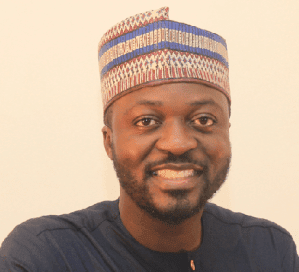Political Issues
Buhari’s Cabinet and Implications For Youth Inclusion -By Ibrahim Faruk

Over the past five years, youth inclusion in democratic processes has gained global attention, buoyed largely by the emergence of young leaders across the world. In Nigeria, the Not Too Young To Run Movement addressed a major impediment to youth inclusion in the electoral process with the passage of the Not Too Young To Run (age reduction) bill into law. This historic piece of legislation was a positive action towards closing the representation gap and signaled a shift towards inclusive politics. As a result of the reduction of age limits, Nigeria witnessed a new wave of competent and credible young women and men who aspired to run for office in 2019 elections. For the first time in Nigeria’s Independence history, young people between the ages of 25 and 30 are legally empowered to contest for seats in the House of Representatives and State Houses of Assembly.
The direct and indirect impacts of the age reduction bill are evident in how the youth fared in the 2019 elections. Across the 991 seats in 36 state houses of assembly, 68 members are between the ages of 31 and 35. While this represents only 6.08 per cent of the members of the state houses of assembly, it is an improvement over the levels of youth inclusion in 2015. More importantly, there are 22 direct beneficiaries of the Not Too Young To Run Act in the state houses of assembly between the ages of 25 and 30. This is directly as a result of the age reduction legislation that was passed by the National Assembly and assented to by the president on May 31, 2018.
The emergence of Rt. Hon. Saliu Yakubu Danladi, Rt. Hon. Abok Nuhu Ayuba, Rt. Hon. Adebo Ogundoyin and Rt. Hon. Nasiru Magarya, speakers of the Kwara, Plateau, Oyo and Zamfara state houses of assembly respectively, who are all under the age of 35, also represents an improvement in the level of youth inclusion across state legislatures. Young legislators also occupy principal positions in various state legislatures following the passage of the age reduction bill.
The age reduction legislation goes beyond reducing the age for running for elective offices to also reducing the age for appointive positions in the federal and state cabinets. The 1999 Constitution of the Federal Republic of Nigeria (as amended) states that ‘No person shall be appointed as a Minister of the Government of the Federation unless he/she is qualified for election as a member of the House of Representatives’ and that ‘No person shall be appointed a Commissioner of the Government of a state unless he/she is qualified for election as a member of the House of Assembly’, among other qualifications aimed at ensuring equal representation in the federal cabinet, which has also been emulated across state executive councils.
In 2015, young people were mainly appointed as special advisers on
During President Buhari’s remarks at the signing of the Not-Too-Young-To-Run Bill in Abuja on May 31, 2018, he said to the Nigerian youth represented at the State House: “You are undoubtedly Nigeria’s most important resource – not oil, not agriculture, not solid minerals – but you and all of us. Your energy, intelligence and talent are what will drive and develop Nigeria, long after we are all gone.” It is left to be seen if energy, intelligence and talent will determine who the president’s men and women would be when the list of ministerial nominees is sent to the Senate for confirmation.
While attention seems to be focused on the announcement of ministerial nominees, state executive councils provide more opportunity to increase the level of youth inclusion in decision-making spaces. It is important to sound a note of caution that beyond the tokenistic appointments of youth as special advisers on new media or to the ministry of youth development but as President Buhari noted, ‘the young people of Nigeria, are now set to leave your mark on the political space, just as you have done over the decades in entrepreneurship, sports, art, media entertainment, technology, and several other fields.
The Not Too Young To Run law has provided an opportunity for the emergence of competent young officials with character to contribute their quotas to national development in appointive positions in the federal and state cabinets. All eyes are now on President Buhari and the state governors as they constitute their cabinets.
Ibrahim Faruk is a senior programme officer with YIAGA AFRICA’s youth programme and is a member of the Leadership and Strategy Team of the Not Too Young To Run Movement. He can be reached via fibrahim@yiaga.org, and tweets @IbrhmFaruk









